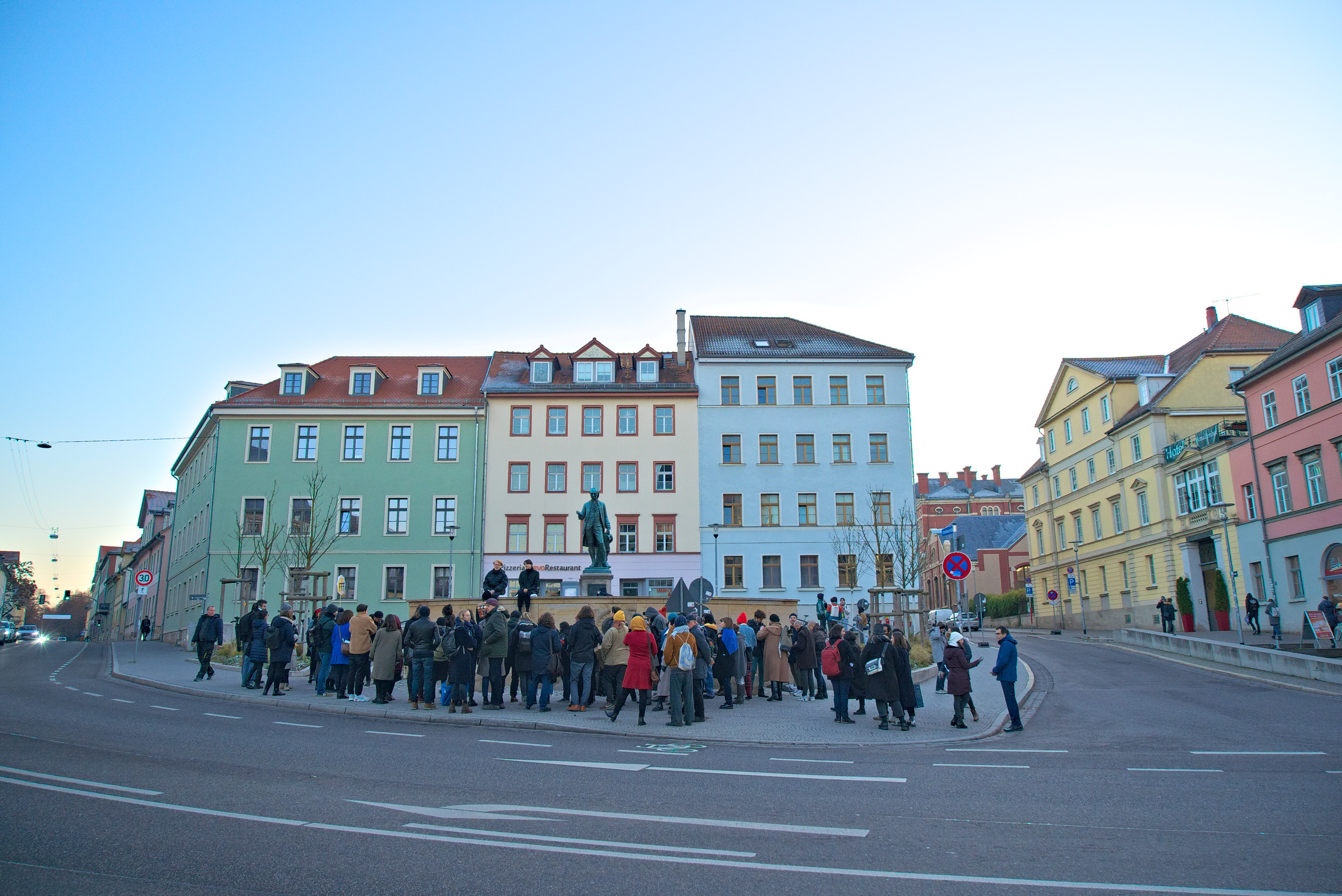








In the frame work of the conference “Humanitarian city, solidarity state?” in December 2019 artistic interventions, actions and performances that address issues of migration, borders and belonging in the context of a complex present were developed. The audience was invited to join the artists for a walk of art through the city of Weimar.
Im Rahmen der Konferenz “Humanitäre Stadt, solidarisches Land? Strategien der Geflüchteteninklusion neu denken” im Dezember 2019 wurden Interventionen, Aktionen, Performances, die sich mit Themen von Migration, Grenzen und Zugehörigkeit in einer komplexen Gegenwart beschäftigen, in einer künstlerische Begehung der Stadt Weimar präsentiert.
Participating artists / Teilnehmende Künstler*innen
Moawya Alkhadra, Nathalia Azuero, Arijit Bhattacharyya, Miguel Buenrostro, Suelen Calonga, Angélica Camargo Flórez, Viktor Dallmann, Vitor de Almeida Mattos, Lucía Diegó, Adhika Ferdinand, Katherin Gutiérrez, Siena Sewon, Denise Lee, María Paula Maldonado, Lina Mujica, Maedeh Nassouri, Matheus Opa, Diana Pacelli, Eleftheria Panousi, Sornrapat Patharakorn, Milad Rezaei, Eemaan Raja, Tian Titirat, Skultantimayta, Nora Spiekermann, Cansu Naz Tekir, Michael Usling, Farzane Vaziritabar, Lea Maria Wittich
WALK OF ART is a public art exhibition project by the international MFA programme “Public Art and New Artistic Strategies” at the Faculty of Art and Design at Bauhaus-Universität Weimar, led by professor Danica Dakić, Raul Walch, Ina Weise, Jirka Reichmann (coordinator). In cooperation with the Chair of Urban Studies and Social Research, UN-Habitat and the Thuringian Commissioner for Migration, Refugees and Integration Mirjam Kruppa.
Der WALK OF ART ist ein Ausstellungsprojekt im öffentlichen Raum des internationalen Masterstudiengangs „Kunst im öffentlichen Raum und neue künstlerische Strategien“ der Fakultät Kunst und Gestaltung der Bauhaus-Universität Weimar unter der Leitung von Professorin Danica Dakić, Raul Walch, Ina Weise, Jirka Reichmann (Koordination). In Kooperation mit der Professur für Sozialwissenschaftliche Stadtforschung, UN-Habitat und der Landesbeauftragten für Integration, Migration und Flüchtlinge Mirjam Kruppa.
Photos: Konrad Behr